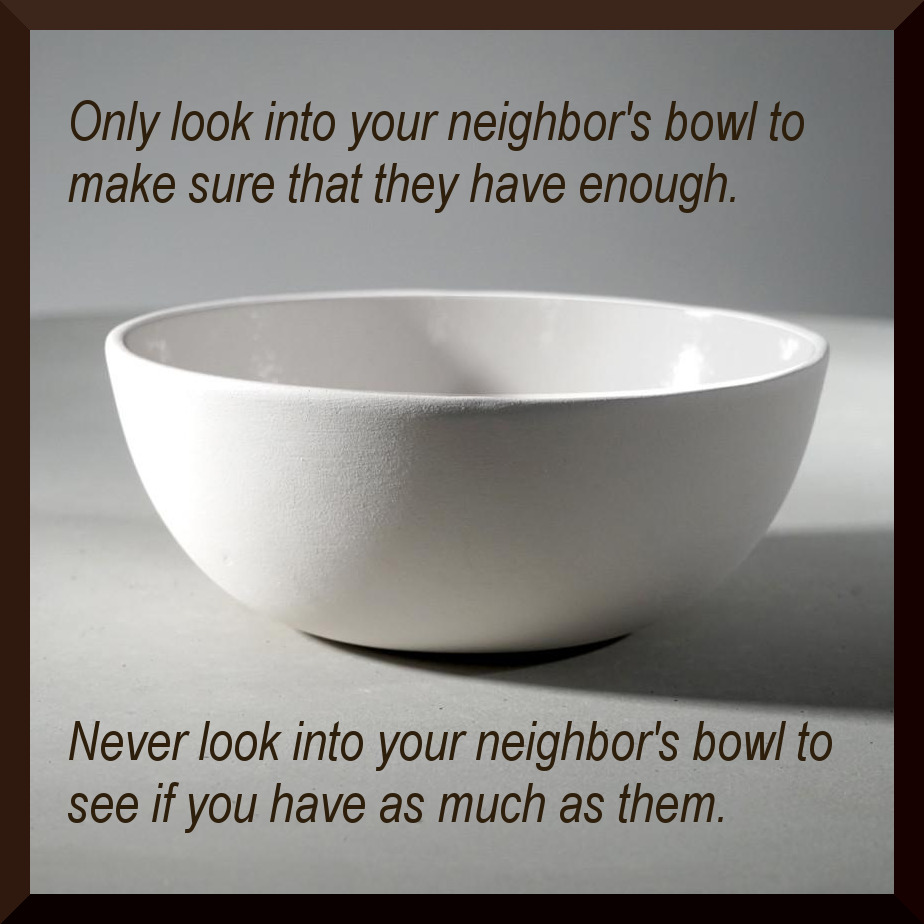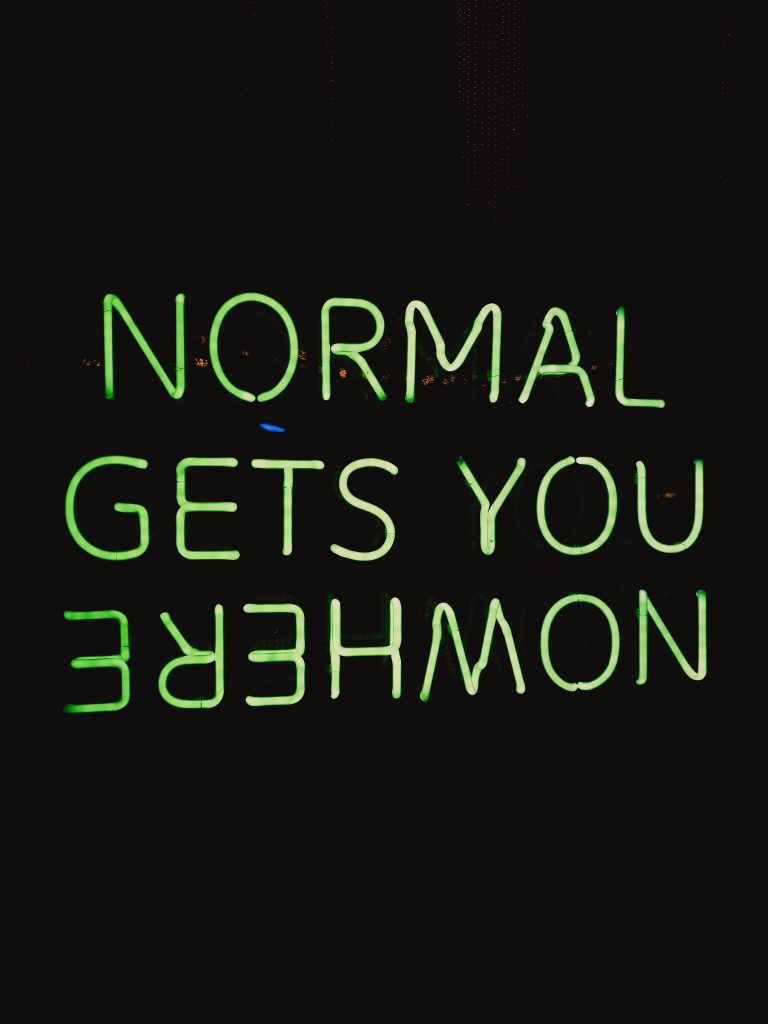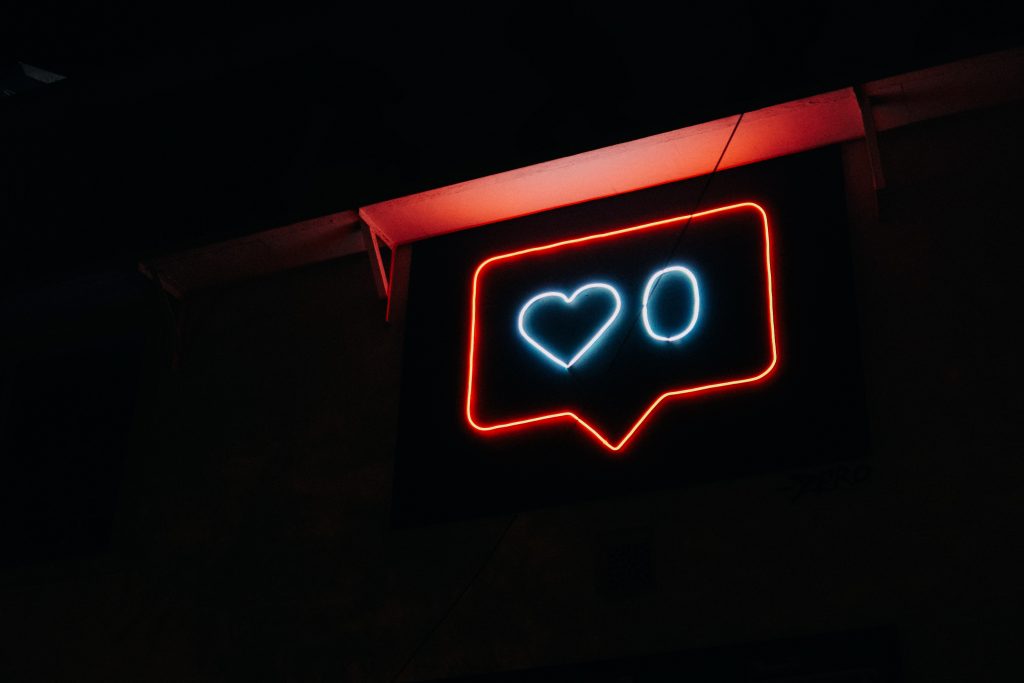We’ve all been there — wondering whether the sex we have is “normal,” and by extension wondering if we are normal. I get it. It’s a normal (ha, ha, but no really) human impulse.
And, it sucks.

Why the comparisons?
The only messages we really get around sex and sex lives are biased. There’s a bottleneck along the way that’s basically like, this is the way you’re allowed to represent what a sexual experience is! And, it colors the image that we have of what sex should be. Notice the should. It’s indicating to you that there’s a social script at work.
I’ve complained about scripts before (or, if you meet with me, every day), but in essence they’re messages we get about how we should be living our lives. We take these messages in, actively or passively, over the course of our lives, and they represent a set of rules and expectations we learn about situations, and they drive how we we make sense of the world, act, and feel. If a script gets followed, we feel right on cue. If not, we feel worried, distressed, lost, or wrong.
Unfortunately, many of our social scripts around sex (other than the ones medicalizing it or saying you’re going to hell for doing it) are bragging. That’s right: you hang out with your girls on a Friday night, and they’re all talking about how they got it in or had so many orgasms with Mr. Anonymous Handsome over there. And we measure ourselves up and can feel inadequate. Emily Nagoski in Come As You Are calls this The Media Message:
“You Are Inadequate.” Spanking, food play, ménages à trois . . . you’ve done all these things, right? Well, you’ve at least had clitoral orgasms, vaginal orgasms, uterine orgasms, energy orgasms, extended orgasms, and multiple orgasms? And you’ve mastered at least thirty-five different positions for intercourse? If you don’t try all these things, you’re frigid. If you’ve had too few partners, don’t watch porn, and don’t have a collection of vibrators in your bedside table, you’re a prude. Also: You’re too fat and too thin; your breasts are too big and too small. Your body is wrong. If you’re not trying to change it, you’re lazy. If you’re satisfied with yourself as you are, you’re settling. And if you dare to actively like yourself, you’re a conceited bitch. In short, you are doing it wrong. Do it differently. No, that’s wrong too, try something else. Forever.
Sound familiar? You’ve been exposed to a social script around sexuality. And this script, in a very Keeping up with the Joneses kind of way, makes you feel… inadequate. Like you’re doing something wrong if you don’t like casual sex, or don’t invest in the latest sex gadgets. It’s driven by capitalism: feel inadequate, try more, buy more.
Humans have a very real desire to be normal. So there’s a tug to compare ourselves against this social script, and also a desire to compare ourselves against what we perceive “normal” humans to be doing. It’s kind of like the old saying “dress for the job you want, not the job you have,” but instead it ends up being more like “compare yourself to this false idea of what normal could be.” We’ve all seen the statistics on what’s “normal”: ~5.5 inches, right? Once a week, right? 30% of the time, right?

My question is, what the fuck does this matter to your life?! Does the average height of a human matter to you, like, at all?! Maybe, if you’re at a statistically significant end of the spectrum and the world isn’t built for you, sure, then it matters quite a bit. But to most of us, not really. In the same way, yes, these statistics can matter if you are longing for a sexual experience and not getting it. But the comparison of yourself to these people in these studies feels kind of more like a moot point, a cute factoid that can feel interesting at best and stressful more often.
That’s the thing about “scripts” and “norms” — the best they have to offer us is that when we are on script or within the bounds of perceived normalcy, we feel right, maybe even confident. Maybe nothing. But going off script? Being “not normal?” Then we face consequences. We feel Bad. Unsure. Worried. Angry. Stressed. Afraid. Is the reward really worth the risk?
Humans are social learners. We observe others, and in doing so, learn how to conduct ourselves and our lives.
That being said, what can really be learned in an age of fake-ass social media, posturing, and internet buzz? We are presented constantly, bombarded, with curated still images from folks’ lives. These are not real and do not represent reality, in all its fullness and quirks.
Often, stories about the sex lives of others are the same: not representative of life’s wholeness, of the ups and downs and twists and turns of people’s lives. I can hear about Will and Jada or Kim or Megan Fox or Billie Eilish or whoever all I want (or can stand to bear) and it still means jack shit about my life. Maybe there’s a tidbit or affirmation here or there that’s worth hanging on to but really, what do we have to gain from the comparisons other than stress? It’s mind-boggling.

Choose to stop comparing
This I’ll share with you, one of my favorite ways of summarizing it — it’s simple, but not easy.
This here meaning, one small behavioral tweak and you’re good to go, right? Just, like, stop comparing. Cute, right? But it isn’t that easy to incorporate in real life, especially when the comparison can feel habitual, pathological. So let’s go over some strengthening resources and reminders.
Numbers don’t mean shit. Stop with the statistics — how often folks have sex, how long sex goes for, how many people can orgasm, others’ weights, penis size, labia looks, boobs, number of partners, etc. Please ask yourself, “How does this matter to my life?”
Look, maybe you’ve been googling how big dicks are because you’re feeling inadequate about your size. And you find a number, and maybe you feel relieved, or maybe you feel even more worried than before, or maybe you feel nothing, which pushes the endless googling on even further. In this moment, it’s more important than ever to check in with yourself, and have a conversation with yourself. Build that emotional intelligence. Acknowledge the comparison. Take care of yourself.
“I’ve been googling this a lot lately, huh? I guess I’m doing it because I feel worried that my body is inadequate. And that hurts to acknowledge. It worries me that I won’t feel like enough for a partner, or I’ll be left for someone I might think is better. I’m putting a lot of weight and emphasis on this thing and I’m not really sure if that means anything in reality. But I have this script in my head because fucking every media ever makes jokes about penis sizes so here I am. Maybe I can save my time and energy and stop worrying about this. Maybe I can stop listening to those messages and instead focus on what actual parts of sex my partner might communicate to me are important. I can also foster a better relationship with my body and my sexuality and in doing so build confidence.”
Cool. Sounds doable? Too good to be true? And yet, this is what a conversation with ourselves could look like, if we could shed some of the societal inhibitions and care for ourselves. Sex is just, like, a thing. Part of life. Mega important, yes, and yet I’m pretty certain we are our own harshest critics over here. Compassion for yourself is key.

How about this one: Stop watching porn!! It’s unrealistic, pressuring, shaming, you name it. Ever wonder where some of those sexual scripts come from? Porn is a mega manufacturer of sexual scripts, and following, insecurities. Remember capitalism which I mentioned earlier? Porn is a business. It sells fantasies, merch, experiences, and many, many products. Porn sells people on what sex should be. But you know what I’ve not experienced in real life? A step sibling telling me they’re fucking stuck in a household appliance. And yet I see so many lemon stealing whores on my feed I’m kind of questioning if people begin to think this stuff is real. Porn sells people on fantasies of what they could have: surgically altered, filtered, airbrushed, facetuned people that have that waist-to-hip ratio we’ve been told to like, and long veiny dicks, fake orgasms, and just enough violence that we begin to believe we’re doing sex wrong if it doesn’t simulate this.
But that’s just it: porn is the simulation. The entire porn industry makes money off of people buying into their shit, and often it’s the most dopamine-releasing junk that continues to bottleneck out what content that gets created as companies analyze what gets views and manipulates the first page (and first 23 pages, if you’re a connoisseur, I see). Just stop if you can bear it. The fact that many people equate porn and masturbation speaks to what an epidemic it’s become, and how normalized it is. And yet the scenes in porn are far from normal. Yeah, yeah, you understand it’s not really real. But when you’re feeling insecure about yourself sexually, and see that face reflected back in your screen after your session is over? I’m just suggesting that if you struggle with sexual comparisons and insecurity, better understanding your relationship with porn may be a good place to start.
Another sage piece of advice: Don’t ask questions you don’t want to know the answer to. Here I’m saying this in regard more specifically to if you feel insecure about a partner’s exes, or sexual history. You could be the most innocent soul in the world to question, “Did you find Veronica to be more attractive than me?” But we both know there’s only one right answer to this question, and asking it opens a mine field of social fumbles and faux pas. If you’re feeling insecure about an ex and comparing yourself, better to begin that conversation with yourself, a close friend, or a trained therapist. Learning more about where the insecurity stems from can be helpful to prevent future comparisons.
Embrace neutrality. Maybe you’re reading this because you’ve said to yourself before, “My sex life sucks.” I get it, it’s a place many of us have been, casting judgements on our sex lives, ourselves, our partners. That being said, it can be helpful to understand the disparaging remarks and self deprecation, and work on reframing them. In reframing, we try to see the perceived problem or issue from another angle. This can take us from “my sex life sucks compared to xyz” or even a flase-positive value judgement of “Thank goodness I don’t have it as bad as xyz” to something more neutral like “I am a sexual being. I have a sexuality. I have a sex life.” etc
Recognize and stop scripting. Here’s a cognitive-behavioral technique for you. If you read the above and were like, “Oh, that sounds familiar,” how about we try calling ourselves when we’re on our bullshit? I know it feels like a small step, but it is a step forward, to be like “I’m looking at that Instagram model’s page again. I feel terrible about myself when I compare my body to hers. I’m going to choose to close the tab now.” Or “Sandy’s talking about her sex life again. Whenever I hear it I feel bad because I’m not having as much sex as her and Ken, and it seems so effortless and painless for her. I’m going to take care of myself in this moment rather than place too much weight on what she’s saying.”

In a similar vein, we can work on, or talk about our sex life instead of ruminating or fantasizing – in therapy, to friends, to partners, etc. I know it’s hard to “come out.” But really here, we are “coming out as a normal person.” And what I mean by that is, if you reveal to others that your sex life or dating life or relationship with sex and sexuality isn’t exactly perfect, you’re the most normal and regular human being of all, and representative of all of us.
The scene is set: we’re watching a sitcom and the thin white couple has a sordid sex affair on camera. I’d love it if we’re hanging out and you call out the actors: “How did she just have sex and yet there’s no cleanup? Where’s that penguin walk to the bathroom??” Hell, I’ll laugh with you. Media isn’t representative of real life. And making a comment in this way opens us up to having a real conversation about the realities of sex.
Maybe we’re at a group hangout and Julianne is just going on about how she’s had sex in every room of the house with her fiance Nathan and she just orgasms all the time. Feels kind of pressuring? Or Selena is telling us about how we just have to take a staycation with our partner, complete with christening all our furniture with body fluid because that’s how she likes to do it. OK. We have not just learned about how we should be having sex. Instead, we just learned about things our friends might feel are important about sex. We can distance ourselves from this message and understand it is theirs, without having to absorb it into our rulebook. Cool. If you’d like to speak up, that’s also merited. “Sometimes sex feels stressful to me. Do you have any other suggestions for connecting activities?” I know it feels trite to hear right now, but please trust me when I say, that’s a message people can relate to. They just don’t show it on their curated feeds, and in their curated “haha look at how well adjusted I am” group stories. It’s ok to take up space. It’s ok to talk about sex like how you wish someone would have modeled for you when you were younger. Or now.
Curate your sex life. Maybe this involves curating the media you consume, or your social feed, or the hangouts you go to. Maybe this means taking risks and actually buying a new-to-you sex toy, or trying something new out that you’ve always wanted to try but have been nervous about initiating, like an online dating profile or a courageous conversation. Maybe this means embracing coziness, or familiarity if you want to, and allowing yourself to settle into a routine and not welcome in something new because it isn’t needed.
Keep in touch with your emotions. They’re there to tell you what you want and what feels good.